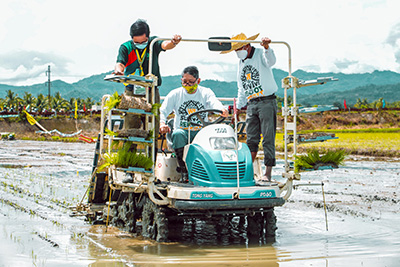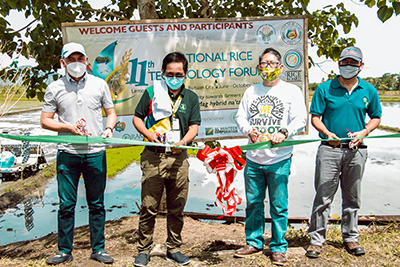The Department of Agriculture (DA) continuously provide all options for the Filipino rice farmers to select technologies that will improve their productivity. One of this is the adoption of the high-end technology for the rice industry – the use of hybrid.
In 2017, hybrid rice utilization is at 9.78%. For the following years, it posted an increase of 12.04% in 2018 and 17.11% in 2019 based on the DA-National Rice Program rice performance report.
The historical data of hybrid utilization in the country calls for a more strategic approach to convince more farmers to adopt the practices and technology of hybrid rice. Given that the wide-scale adoption of such technology could help attain the rice sufficiency goal.
For 2020 wet cropping season, 61 participating Farmer-Cooperators from the Barangays of Ampayon, Basag, and Lemon in Butuan City is taking part in establishing a 100-hectare area rice technology demonstration.
“The techno demo area is a learning site for the farmers to see the advantages of hybrid rice. With this, Caraga rice farmers will have the opportunity to personally see the result and choose which among the best practices and technologies introduced are applicable to their farm conditions,” said Director Monteagudo.
The farmer-cooperators will also take the responsibility of the labor cost and expenses for the maintenance and the growth of hybrid rice until its harvesting.
Private seed companies such as SL Agritech Corporation, Seedworks, Bioseed, Ramgo, Bayer, Pioneer, Syngenta, Advanta, and LongPing are the partners of the farmer-cooperators in the development of the demonstration farms.
Alongside the private seed companies, DA-Philippine Rice Research Institute (PhilRice) – Agusan and Phil-Sino Center for Agricultural Technology (PhilScat) also participated in the technology demonstration.
Since water is very important in hybrid production, DA together with the National Irrigation Administration – Caraga is working closely to ensure water availability in the production sites.








